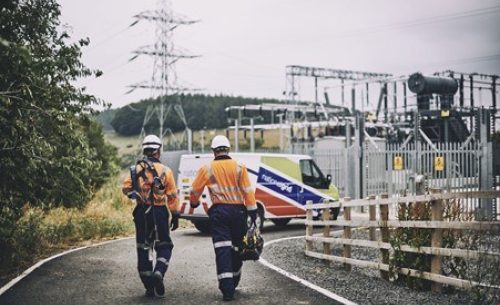

Distributed Control Solution for Major Recycling and Renewable Energy Plant
Control & Automation System / Integrated solution
Following public consultations construction began on a £154 million new recycling and renewable energy centre in a major Scottish city.
The extraordinary facility produces enough energy to power the equivalent of 22,000 households and heat the equivalent of 8,000 homes, offsetting 90,000 tonnes of carbon dioxide every year.
The Need
Key objectives for the control solution at this new facility included the provision of a secure, reliable, cost and energy efficient system. This was required to help the local City Council comply with the EU Waste Framework Directive by diverting waste from landfill, to facilitate the recycling and energy recovery from municipal waste.
The project scope included implementing a distributed control system (DCS) for the Mechanical and Biological Treatment Plant (MBT) for three key functional areas of the facility:
- Materials Recovery Facility (MRF)
- Anaerobic Digester (AD)
- Fuel preparation and balance of plant
A Siemens PCS7 DCS system was chosen, with an integrated safety shutdown system.

Benefits
- Cost savings associated with diversion of waste from landfill
- Sustainable facility – delivering a saving of 90,000 tonnes of carbon dioxide annually
- Cogeneration systems that generate electricity and heat at the same time are highly efficient
- Provides local employment to community
Design Features
- Easy to use: common ‘look and feel’ user interface across plant
- Easy to maintain: through common software modules and structure
- Secure: cyber security built into the system
- Fully integrated diagnostics: results in reduced downtime
Why Capula?
Capula was selected to provide a full scope of supply including design, software engineering, supply and delivery of all control and safety system equipment fully mounted in cubicles with ancillary equipment.
The fully integrated system was tested, installed and commissioned
Capula solution
Capula completed its section of the works at this complex facility to schedule. It was essential that the control system implemented functioned reliably and efficiently, especially since there were many stakeholders relying on the plant’s services and output. All technologies selected and delivered for this project were proven and trusted.
The solution was designed with cyber security in mind: typical downtime losses in revenue alone, for plants of this size and capacity can exceed approximately £85,000 per day, and damage resulting from a successful cyber breach can take weeks or even months to recover data losses or restore normal service.
With security in mind, Capula provided a comprehensive set of embedded mechanisms to manage risks against the current cyber threat landscape.
The control solution also enabled alarm handling and introduced automatic event logging to allow system health checks to be carried out. Such diagnostic facilities were embedded in the DCS to facilitate simplified maintenance and fault finding.
Capula’s expertise and previous experience in this sector helped in resolving all technical issues and to deliver an efficient and technically advanced plant. The implementation of this control system puts the client in a position where they are well placed to meet the operational and legislative compliance demands imposed on municipal waste recycling facilities.










